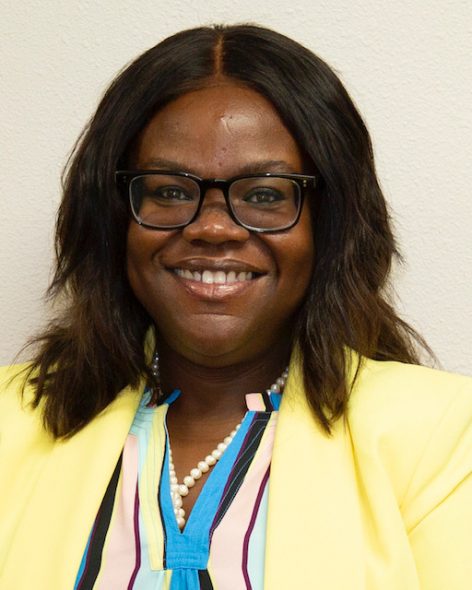Marquette hires Laiya Thomas as new director of Educational Opportunity Program
MILWAUKEE — Marquette University has announced the hiring of Laiya Thomas as director of the Educational Opportunity Program, a federally funded TRIO program that motivates and enables low-income and first-generation college students to enter and succeed in higher education.
EOP is comprised of five programs: Student Support Services, McNair Scholars, Upward Bound, Upward Bound Math and Science, and Educational Talent Search. Each program is designed to provide preparation, access, and transitional assistance to low-income and first-generation students. These are a mix of pre-college programs, that partner with Milwaukee Public Schools, and programs for current Marquette undergraduate students, offering tutoring and college preparation and transition services.
“The Educational Opportunity Program was a groundbreaking commitment to diverse students from Milwaukee and, after more than 50 years, it continues to advance Marquette’s mission to provide an accessible and transformative educational experience to its students,” Marquette Provost Kimo Ah Yun said. “Marquette’s EOP Program was among the first in the nation and has earned a reputation as one of the most distinguished, admired, and respected federal TRIO programs. We are thrilled that Laiya has rejoined the university to lead this program. Her commitment to Marquette’s mission of making education accessible, and her years of experience putting that mission into action, both at Marquette and in the state of Wisconsin, makes her a tremendous leader for this program.”
Thomas returns to Marquette where she worked in EOP for 11 years until 2019, first as a counselor and then as assistant director. Most recently, she served as executive director of the Wisconsin Educational Opportunity Programs within the Wisconsin Department of Public Instruction. With WEOP, she was responsible for managing statewide programs: the Early Identification Program, Federal TRIO programs, Talent Incentive Program, Precollege Scholarship Program, and the Gaining Early Awareness and Readiness for Undergraduate Program (Gear UP).
“I am so excited to return to Marquette and lead the Educational Opportunity Program,” Thomas said. “I look forward to building upon the rich legacy of the program that has just celebrated 50 years.”
Thomas is a double alumna of Lakeland University, receiving her master’s degree in counseling and student affairs in 2008. She also earned a graduate certificate in dispute resolution from Marquette and is a licensed counselor in the state of Wisconsin.
EOP recently celebrated 50 years of serving students who are historically underrepresented in higher education, including students who have the potential of being the first in their families to graduate from college and students from diverse economic backgrounds.
EOP was created as an institutional program under the leadership of Arnold Mitchem in 1969, who went on to serve as the president of the Council for Opportunity in Education. The program started with just 40 students and one staff member, but the incredible students, along with supportive faculty, staff, university leadership and the Milwaukee community, helped EOP flourish into what became a model for other college access and opportunity programs and the United States Department of Education’s federally funded TRIO programs, which are located on college campuses throughout the country.
NOTE: This press release was submitted to Urban Milwaukee and was not written by an Urban Milwaukee writer. While it is believed to be reliable, Urban Milwaukee does not guarantee its accuracy or completeness.
Mentioned in This Press Release
Recent Press Releases by Marquette University
New Marquette Law School Poll finds large majority of Wisconsin voters not yet tuned in to who is running in major 2026 elections
Oct 29th, 2025 by Marquette UniversityNo candidate has established strong position in public favorability in governor, state Supreme Court races; large majorities of voters undecided
New Marquette Law School National Survey Finds Large Majority Think Political Violence is a Big Problem, But With Sharp Partisan Differences
Oct 1st, 2025 by Marquette UniversityAmericans are overall pessimistic on reducing intense political conflict; half of those polled say heated language by leaders makes violence more likely























